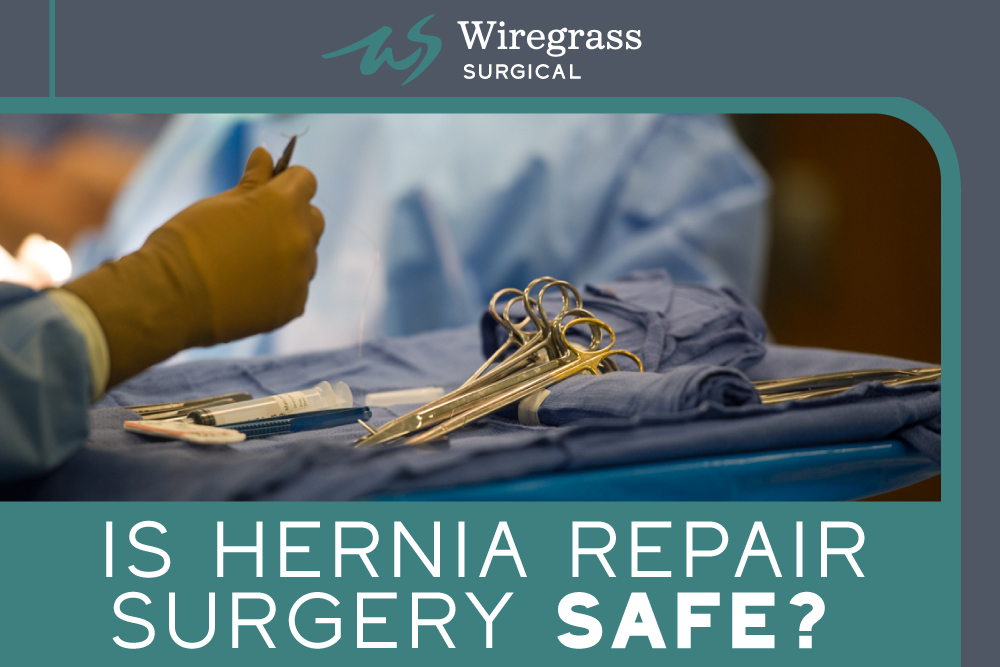
A hernia repair is a common surgery, and it is estimated that more than one million hernias are repaired in the United States per year.
A hernia occurs when an organ, tissue or intestine squeezes through a hole or a weak spot in the surrounding muscle or connective tissue. They are common in the abdominal wall and can sometimes be seen as an external bulge when straining or bearing down.
The most common types of hernias include:
- Inguinal: in the inner groin
- Femoral: in the upper thigh/outer groin
- Incisional: through an incision or scar in the abdomen
- Ventral: general abdominal/ventral wall
- Umbilical: at the belly button
- Hiatal: inside the abdomen along the upper stomach or diaphragm
Causes of Hernias
Most hernias are caused by a combination of pressure and a weak spot in the muscle or connective tissue. The pressure pushes an organ or tissue through the opening. Sometimes muscle weakness is something someone is born with, or it is common to occur later in life as well. Other things that cause an increase in abdominal pressure include obesity, heavy weight lifting, persistent coughing or sneezing, constipation or overexertion. Poor nutrition and smoking can also weaken muscles.
Hernia surgery
Our general surgeons can repair hernias laparoscopic, robotic or open. With a laparoscopic approach, the surgeon makes several small incisions in the abdomen that allow the surgical tools to repair the hernia. It can be done with or without surgical mesh.
Robotic surgery uses a laparascope and is performed in the same manner, however the surgeon is seated at a console in the operating room and handles the surgical instruments from the console. Robotic surgery can be used on different types of hernias as well as to rebuild the abdominal wall.
An open repair is done by making an incision near the hernia and repairing weak muscle, with or without mesh. An open repair with sutures and no mesh is referred to as a primary closure, and is common treatment for small hernias.
Surgical mesh: is it safe?
Since hernias have a high rate of recurrence, surgeons often use surgical mesh to strengthen the hernia repair and reduce recurrence. The surgical mesh may also improve patient outcomes through decreasing operative time and minimizing recovery time (however recovery will depend on what kind of hernia surgery you are having).
There has also been research that has demonstrated that hernia recurrence rates, especially for inguinal hernias, is higher when surgeons repair using sutures (primary closure) than with mesh repairs.
Our general surgeons are skilled and trained to repair hernias robotically, which is a relatively new technique. Advantages of robotic surgery include three-dimensional images of the abdomen, smaller incisions and less pain. Flower’s Hospital provides access to three da Vinci robots, and our surgeons are nationally recognized as some of the best in the region.
Learn more about laparoscopic vs. robotic surgery here.
Annoyed with hernia pain? Call our office today to book an appointment with one of our general surgeons to be evaluated.
Learn more about hernia symptoms and causes in men vs. women.
